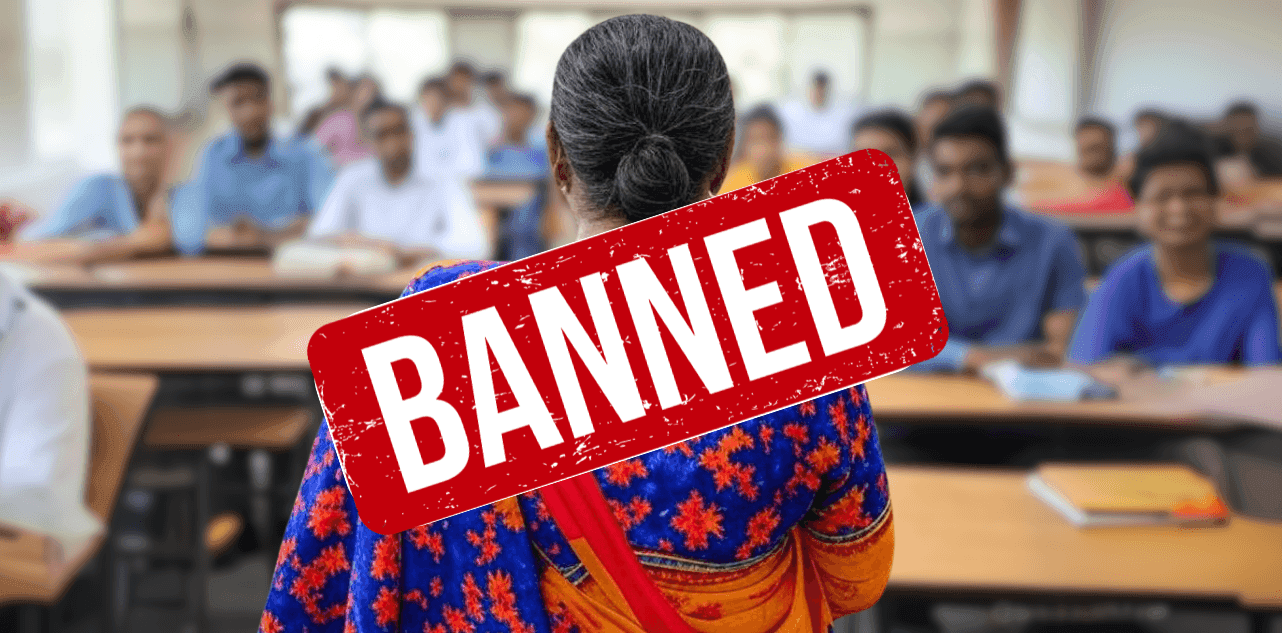Tuesday 17 February 2026
Professor Banned for Asking Question Regarding RSS
Share

In a move that has ignited debates about academic freedom and the boundaries of educational discourse, Chaudhary Charan Singh University (CCSU) has imposed a lifetime ban on Professor Seema Panwar, head of the Political Science department at Meerut College, barring her from all examination and evaluation duties. This disciplinary action stems from an exam question she set, which was perceived as contentious by certain student groups.
On April 2, during a second-semester Political Science examination, students encountered a question that allegedly linked the Rashtriya Swayamsevak Sangh (RSS) to the proliferation of religious and caste-based politics. The question also mentioned the RSS alongside organizations such as the Naxalites and the Jammu and Kashmir Liberation Front. This association prompted immediate backlash from the Akhil Bhartiya Vidyarthi Parishad (ABVP), the student wing of the RSS.
Following the examination, ABVP members organized protests on the Meerut College campus, expressing their discontent with the inclusion of the RSS in the exam question. They submitted a memorandum to the university registrar, demanding stringent action against Professor Panwar for what they deemed an inappropriate portrayal of the RSS.
In response to the protests and the ensuing controversy, CCSU conducted an internal inquiry to ascertain the facts surrounding the exam question. The investigation confirmed that Professor Panwar was responsible for setting the paper. Subsequently, the university administration decided to debar her from all future examination and evaluation responsibilities. Dhirendra Kumar Verma, the registrar of CCSU, stated, "She has been debarred from all examinations and evaluation work in the university for life."
Amid the escalating situation, Professor Panwar issued a written apology, clarifying that there was no intent to offend or target any organization. She emphasized that the question was framed within an academic context and not designed to hurt sentiments. Verma acknowledged her apology, noting, "She has apologized in writing that she did not do this intentionally to hurt anyone."
This incident has sparked a wider debate on the state of academic freedom in India. Educators and scholars are voicing concerns about the increasing interference of political and ideological entities in academic settings, which they argue undermines the autonomy of educational institutions.
The case of Professor Panwar is not isolated. Similar incidents have occurred where academic professionals faced repercussions due to the content of their teachings or research. For instance, in June 2024, a lecturer in Maharashtra was sent on forced leave following a classroom discussion on religious discrimination that led to student unrest. The lecturer reported that the college management, while supportive, was under significant pressure, highlighting the complex dynamics between academic discourse and external influences.
The relationship between government employees and the RSS has also been a subject of legal scrutiny. In July 2024, the Madhya Pradesh High Court commented on the central government's longstanding ban preventing its employees from associating with the RSS. The court observed that it took nearly five decades for the government to reconsider and lift this ban, questioning the initial rationale behind categorizing the RSS alongside other banned organizations. The court's remarks underscored the evolving perceptions of the RSS within the legal and governmental framework.
Student organizations like the ABVP play a significant role in shaping the campus climate and influencing administrative decisions. While they are instrumental in representing student interests and mobilizing collective action, their involvement in academic affairs raises questions about the balance between student activism and academic independence. The Meerut College incident exemplifies how student-led protests can lead to administrative actions that have profound implications for faculty members and the broader academic community.
The lifetime ban imposed on Professor Seema Panwar serves as a critical focal point in the ongoing discourse about academic freedom in India. It highlights the delicate balance educators must maintain when addressing politically sensitive topics and the potential consequences of perceived transgressions. As educational institutions continue to navigate these complex dynamics, the need for clear policies that protect academic integrity while respecting diverse perspectives becomes increasingly evident.
This incident calls for a broader reflection on the autonomy of academic institutions and the extent to which external pressures should influence educational content and pedagogical approaches. Ensuring that universities remain spaces for open inquiry and critical thinking is essential for fostering an environment where knowledge can thrive, free from undue censorship or ideological constraints.
Newsletter
Stay up to date with all the latest News that affects you in politics, finance and more.